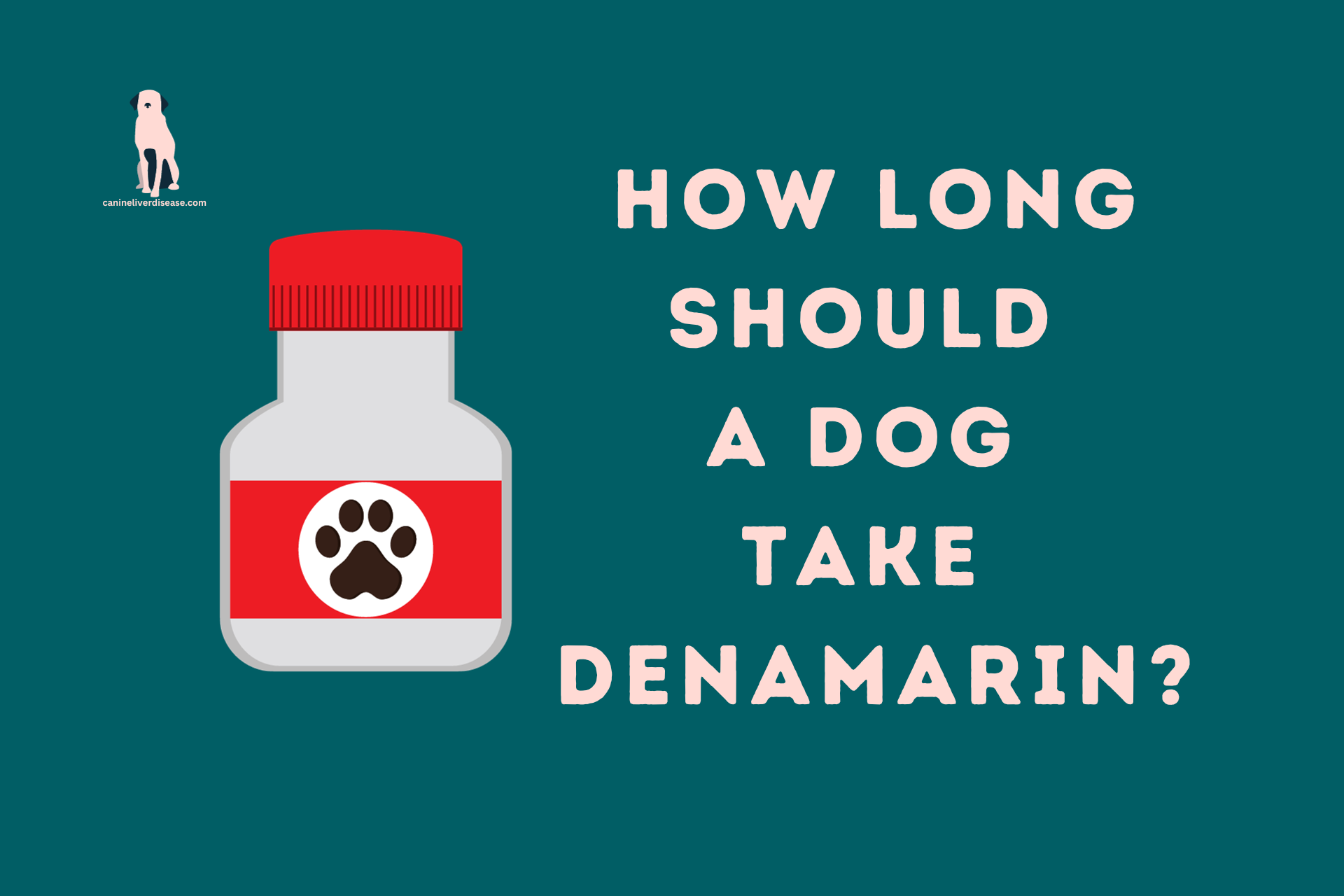How Long Should A Dog Take Denamarin?
When it comes to your furry companion’s health, it is crucial to ensure they receive the right treatment and supplements. Denamarin is a popular liver supplement for dogs, known for its effectiveness in supporting liver function.
However, one common question among pet owners is, “How long should a dog take Denamarin?” This comprehensive guide will delve into the dosage, treatment duration, and other essential aspects of using Denamarin for your canine friend’s liver health.
How Long Should A Dog Take Denamarin?
A dog should typically take Denamarin for 15 to 30 days, depending on the specific health condition and treatment plan a veterinarian recommends. It’s important to follow the veterinarian’s guidance closely, as they will assess the dog’s progress and determine the appropriate treatment duration for their individual needs.
Understanding Denamarin for Dogs
Before we delve into the treatment duration, let’s understand what Denamarin is and how it works. Denamarin is a liver supplement designed to promote and maintain liver health in dogs. It contains two key components: S-Adenosylmethionine (SAMe) and Silybin, derived from milk thistle extract.
S-Adenosylmethionine (SAMe): SAMe is a vital molecule that plays a significant role in various biochemical processes, including liver function. It helps support the liver’s ability to detoxify the body, metabolize medications, and produce essential proteins.
Silybin: Silybin is an antioxidant extracted from milk thistle. It has powerful anti-inflammatory and antioxidant properties, which help protect liver cells from damage.
Dosage Guidelines for Denamarin
The right dosage of Denamarin for your dog depends on their size and specific health needs. Denamarin is available in different formulations, including chewable tablets designed for small to medium dogs and larger tablets for larger breeds. Here are some key dosage guidelines to consider:
Denamarin for Small to Medium Dogs
For small to medium-sized dogs, it is typically recommended to administer Denamarin chewable tablets. The standard dosage is as follows:
- Dogs weighing up to 12 pounds: 1 tablet of Denamarin for small dogs (90 mg SAMe / 9 mg Silybin) daily.
- Dogs weighing 13 to 34 pounds: 1 tablet of Denamarin for medium dogs (225 mg SAMe / 24 mg Silybin) daily.
These dosages are general guidelines; your veterinarian may adjust them based on your dog’s specific condition.
Denamarin for Large Dogs
Denamarin tablets are available in a higher potency for larger dogs to meet their needs. The standard dosage for large dogs is as follows:
- Dogs weighing 35 to 65 pounds: 1 tablet of Denamarin for large dogs (425 mg SAMe / 35 mg Silybin) daily.
Again, it’s essential to consult your veterinarian to determine the most appropriate dosage for your dog.
Treatment Duration with Denamarin
The duration for which your dog should take Denamarin depends on the underlying condition and the advice of your veterinarian. Denamarin is often used for the following purposes:
Liver Disease Treatment
When Denamarin is prescribed as part of the treatment plan for liver diseases such as hepatitis, cirrhosis, or liver shunts, the duration of use can vary. Sometimes, it may be recommended for several months to support liver function and promote healing. Your veterinarian will assess your dog’s progress and adjust the treatment duration accordingly.
Preventive and Maintenance Use
In some instances, Denamarin is used as a preventive measure to maintain liver health or to support dogs exposed to potential toxins. In such cases, your veterinarian may recommend Denamarin for an extended period or even as a lifelong supplement to ensure continued liver support.
Monitoring Liver Enzymes
Your veterinarian may monitor your dog’s liver enzymes through blood tests during Denamarin treatment. This monitoring helps assess the treatment progress and whether any adjustments are needed.
Possible Side Effects of Denamarin
Denamarin is generally well-tolerated by most dogs, but like any supplement or medication, it can have side effects.
Common side effects may include mild gastrointestinal upset, vomiting, or diarrhea. If you notice any adverse reactions in your dog while using Denamarin, it’s essential to contact your veterinarian promptly. They can guide whether to continue or adjust the treatment.
Absorption and Stomach Considerations
To ensure optimal absorption of Denamarin, it’s advisable to administer the tablets on an empty stomach, about one hour before feeding. This allows the active ingredients to be absorbed more effectively.
Other Medications and Denamarin
If your dog is on other medications, informing your veterinarian is crucial. Some medications may interact with Denamarin, and your vet can help determine the best timing and dosage to avoid any potential conflicts.
Frequently Asked Questions (FAQs)
1. Can Denamarin be used for cats as well?
No, Denamarin is formulated specifically for dogs. There are separate supplements designed for cats with similar liver health concerns.
2. Are there any alternatives to Denamarin for liver support in dogs?
Yes, there are alternative liver supplements available. However, Denamarin is a widely trusted and researched option.
3. Can I give Denamarin to my dog without a veterinarian’s prescription?
While Denamarin is available without a prescription, it is always advisable to consult your veterinarian before starting any new supplement for your dog.
4. Are there specific breeds more prone to liver issues that may benefit from Denamarin?
Liver issues can affect dogs of all breeds. Whether Denamarin is suitable for your dog depends on their health and the advice of your veterinarian.
5. Is Denamarin effective for dogs with conditions like valley fever or those taking fluconazole?
Denamarin can benefit dogs with conditions like valley fever, but it’s essential to consult your veterinarian for proper guidance, especially when other medications are involved.
Conclusion
Ensuring your dog’s liver health is essential for their overall well-being. Denamarin, with its key ingredients SAMe and Silybin, provides valuable support for dogs with liver issues. The right dosage and treatment duration depends on your dog’s needs, so consulting with your veterinarian is crucial.
Remember to monitor your dog’s progress and report any side effects promptly. You can help your beloved canine companion enjoy a healthy and happy life with proper care and guidance.







